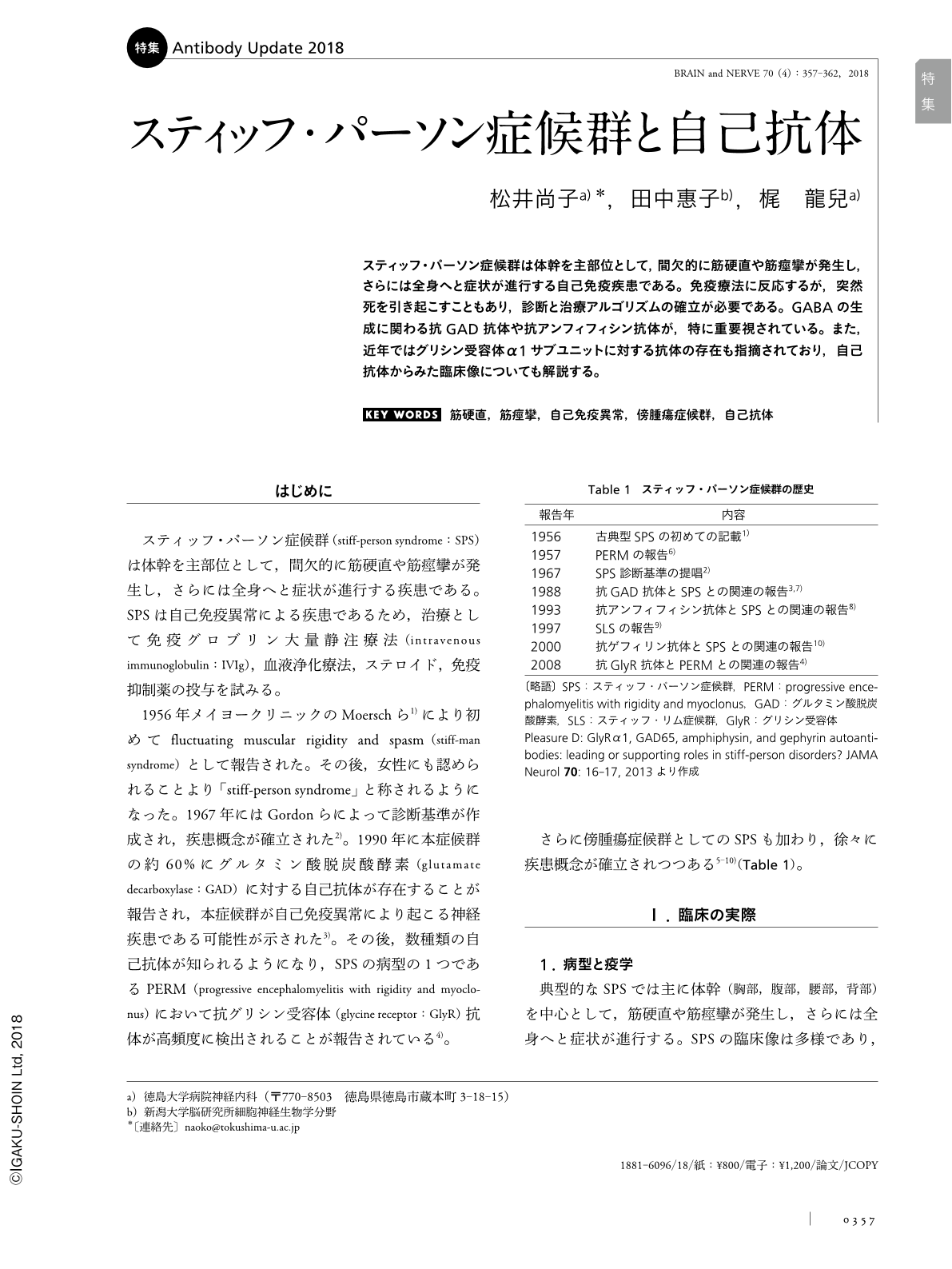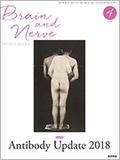Japanese
English
- 有料閲覧
- Abstract 文献概要
- 1ページ目 Look Inside
- 参考文献 Reference
スティッフ・パーソン症候群は体幹を主部位として,間欠的に筋硬直や筋痙攣が発生し,さらには全身へと症状が進行する自己免疫疾患である。免疫療法に反応するが,突然死を引き起こすこともあり,診断と治療アルゴリズムの確立が必要である。GABAの生成に関わる抗GAD抗体や抗アンフィフィシン抗体が,特に重要視されている。また,近年ではグリシン受容体α1サブユニットに対する抗体の存在も指摘されており,自己抗体からみた臨床像についても解説する。
Abstract
Stiff-person syndrome (SPS) is a disorder characterized by fluctuating muscle rigidity and painful spasms that occur spontaneously or are triggered by diverse stimuli. Partial or segmental forms of the disorder, such as stiff-limb syndrome (SLS) and a more severe disease called progressive encephalomyelitis with rigidity and myoclonus (PERM), are usually considered within the spectrum of SPS. SPS responds to immunotherapies, and several autoantigens have been identified. Most patients with SPS have a high-titer of antibodies against glutamic acid decarboxylase (GAD), the rate-limiting enzyme for the synthesis of γ-aminobutyric acid (GABA), and up to 15% have antibodies to the glycine receptor α-subunit. This review explains milestones in defining SPS including autoantibodies.

Copyright © 2018, Igaku-Shoin Ltd. All rights reserved.


